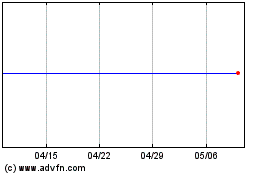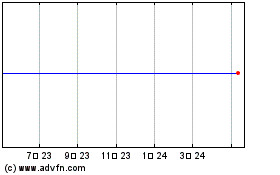By Robert McMillan and Georgia Wells
The U.S. indictment handed down against three Russian companies
and 13 individuals shows starkly how ill-prepared the tech giants
were for the type of aggressive influence campaign the Russians
allegedly mounted.
The details also suggest it won't be easy to stop such tactics
in the run-up to the midterm election in less than nine months, say
researchers who study social media.
Facebook Inc., Google parent Alphabet Inc., and Twitter Inc.
have more than 100,000 employees and $150 billion in annual revenue
combined. But a group of fewer than 100 Russian provocateurs armed
with social-media savvy and widely available technological tools
was able to manipulate the companies' platforms to sow discord for
years, according to the indictment.
The indictment shows that "there are lots of levers that get
pulled in social media for the sake of manipulation, and a lot of
those levers aren't even known by the companies themselves," said
Sam Woolley, an Oxford University research associate who has
studied propaganda efforts on social-media platforms.
The indictment, secured by special counsel Robert Mueller as
part of his investigation into Russian meddling, documented an
unprecedented manipulation campaign targeting Facebook, its
Instagram platform, Google's YouTube video site and Twitter.
Starting in 2014, the Russians built an influence operation that
drew followers to bogus accounts that spread disinformation,
organized demonstrations, and even paid a U.S. resident to dress up
like Hillary Clinton in a prison uniform at a West Palm Beach,
Fla., rally, according to the indictment.
While much of the attention around the Russian manipulation has
focused on its efforts to stoke divisions ahead the 2016 U.S.
presidential election, it is clear that it has continued since
then. The Wall Street Journal reported in October that some of the
Russian-backed accounts continued to post divisive messages at
least as recently as this past August.
In a Twitter post after the indictment was made public Friday,
Rob Goldman, Facebook's head of advertising, said the Internet
Research Agency -- the St. Petersburg, Russia, company that
allegedly coordinated the social-media campaigns -- spent more
money on Facebook advertising after the 2016 election.
On Saturday, President Donald Trump referred to other comments
by Mr. Goldman which disputed the effectiveness of fake ads placed
during the election as support of his position that he received no
benefit from the Russian meddling.
U.S. officials also are bracing for more Russian efforts ahead
of this year's midterm elections. Last week, Dan Coats, the Trump
administration's top intelligence official, warned that the
elections remain vulnerable to Russian interference.
Since they began in September disclosing evidence of the Russian
manipulation, the tech firms have all said they are taking steps to
stop such activity. Facebook has pledged to hire 10,000 new
security employees and is working with other companies and the
federal government to address the problem. The company says it will
verify political advertisers and is testing a tool in Canada that
will identify Facebook advertisers. It plans to roll that out in
the U.S. this summer. Facebook is "taking aggressive steps to
prevent this sort of meddling in the future," Mr. Goldman said in a
post on Twitter.
Twitter hasn't said whether it expects to hire more employees to
combat manipulation, but the company has improved its internal
analysis tools over the past year, according to people familiar
with the effort. The company has used machine-learning algorithms
to address some of the thorniest challenges facing its platform in
the past, such as terrorism on its social network. The firm plans
to improve lines of communication with political parties ahead of
the fall election, Twitter said in a January blog post. It also
will require advertisers to disclose what account is behind
advertising and who is paying for it, Twitter has said.
YouTube didn't respond to requests for comment Saturday. In
November, Google's General Counsel Kent Walker said the company
found limited influence activity on its platforms during the 2016
election, and pledged to increase transparency over advertising and
to work with officials to fight disinformation.
Outside researchers say the companies haven't released enough
details about their anti-influence efforts to determine whether
they will work.
Thomas Rid, professor of strategic studies at Johns Hopkins
University, believes Twitter and YouTube, which allow anonymous
accounts, will have a bigger problem detecting and blocking
nefarious or manipulative accounts than Facebook. Twitter allows
automated programs -- called bots -- to send messages via its
platform. These bots can be manipulated to make topics or people
appear to be popular when they aren't, researchers say.
Facebook has its own problems, said Oxford's Mr. Woolley.
"Facebook has become so big in such a short period of time that
it's become extremely hard for them to track, if not prevent, all
of the propaganda that occurs on their platform," he said.
Mr. Woolley would like the social-media-platform companies to
open up more of their data to him and other researchers so that
public gets a clearer view of the manipulation and how it affects
public opinion.
Another problem facing the technology companies is the Byzantine
nature of today's online advertising. Third-party companies often
sell many of the ads that appear on Facebook, YouTube and Twitter,
making it harder for these companies to verify the identity of the
advertisers on their sites.
It isn't yet clear if the technology companies will put the
effort required into solving Russia's manipulation problem, but a
solution is possible, said Benjamin Edelman, a Harvard University
professor who has studied the role of deceptive advertising in
technology.
"We put a man on the moon, and we've got cars that drive
themselves," he said. "I do believe that we can build business
processes supported by software that identify ads that demand
further review."
Write to Robert McMillan at Robert.Mcmillan@wsj.com and Georgia
Wells at Georgia.Wells@wsj.com
(END) Dow Jones Newswires
February 18, 2018 08:14 ET (13:14 GMT)
Copyright (c) 2018 Dow Jones & Company, Inc.
Twitter (NYSE:TWTR)
過去 株価チャート
から 3 2024 まで 4 2024

Twitter (NYSE:TWTR)
過去 株価チャート
から 4 2023 まで 4 2024
